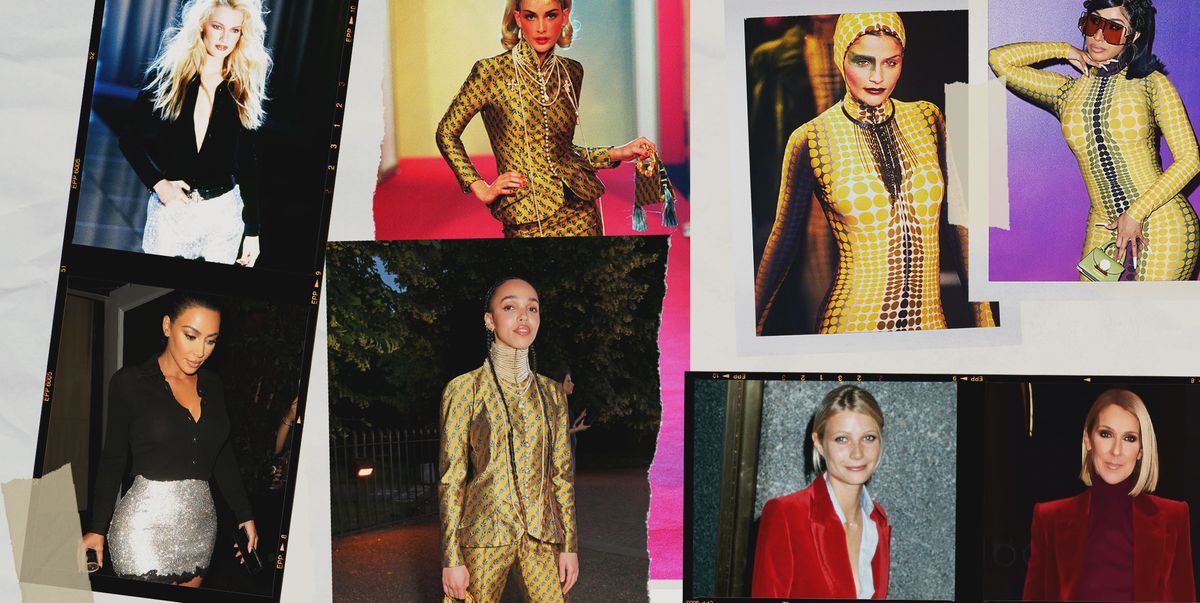I remember where I was standing. It was May 2006, and I was attending a book publishing convention when I felt the splash of hot coffee on my calves. And I remember what I was wearing: a Chloé prancing-horse skirt I’d purchased on a financially delusional whim five years prior. This was an item deeply of its time—low-slung, sheer, clingy. A book publishing convention is no place for a skirt of this caliber or style, which could explain the karmic coffee punishment. The spiller offered to pay for dry cleaning, but I knew the skirt’s best days were behind it. And yet here we are, 14 years later, and I can see it taking up precious closet space from where I type.
There’s no way I’m chucking an item that’s triply iconic—for my own life, for the period during which it was manufactured, and for the brand itself (those horses originated in Stella McCartney’s stable). And it seems I’m not alone in my attachment. Coffee or no coffee, the skirt stands out as an enviable turn-of-the-century item, emblematic of the late ’90s and early aughts neo-vintage nostalgia for which seemingly every young celebrity is jonesing. Bella Hadid has a penchant for Y2K-era Dior and Cavalli and has been photographed so many times wearing her collection of eighteenth-century-by-way-of-the-’80s Vivienne Westwood corsets that Westwood has announced she’s reissuing them. The Kardashians and Cardi B are in a demolition derby–level race to see who can wear the rarest vintage Gaultier. Rihanna recently stepped out in a kimono from the indelible spring 1995 John Galliano show. And in September, Adwoa Aboah donned an emerald column of Gucci-era Tom Ford.
According to Cameron Silver, founder of the vintage emporium Decades in Los Angeles, “It’s only natural that as historic vintage has become more socially acceptable, neo-vintage would be the next frontier.” He’s noticed that even some high schoolers would “rather wear a Todd Oldham or Christian Lacroix dress to prom than something from the mall or risk showing up in the same Rent the Runway look.” Indeed, there’s something lighthearted
and sly about drawing from the more recent past. For years, red carpets have been strewn with mid-twentieth-century pieces, but there’s always an air of solemnity to the proceedings when these women are asked what they’re wearing, as if to say, “Let us now take a moment to visualize me as an MGM star.” Fresher iterations of history transmit an air of fun. And objects in the bedroom mirror are closer than they appear.
“There is an emotional attachment to the decades that we were born into,” says Marie Blanchet, CEO of the UK’s famed William Vintage, which supplied Rihanna with that Galliano look. This would certainly explain why so many ’90s babies are tossing their credit cards at this era. (The nostalgia cuts deep for designers, too. Blanchet cites Tom Ford’s spring 2020 show, which riffed on some of his Gucci-era hits.)
The decades in question also represent a generally rosier time. As impractical as my Chloé skirt purchase was for my own wallet, it was acquired when the world wasn’t demonstrably on fire and before the 2008 crash was a glimmer in our collective eye. When celebrities wear clothing from this period now, they do so with a great familiarity with the events that followed, events that shaped their own lives. They are not glorifying the past, as we have often done with older vintage pieces, willfully ignoring the social unrest of those decades. When Aboah wore that Gucci dress, she left behind the lush green stole that accompanied it and modernized it with stacks of bracelets and rings instead. This is the spirit with which I intend to take my Chloé skirt out of the closet this spring. Partly because I am not in possession of a Gucci stole. And partly because, in the right light, you can still see the coffee stains, signs of a past I remember well.
This article appears in the March 2020 issue of ELLE.
